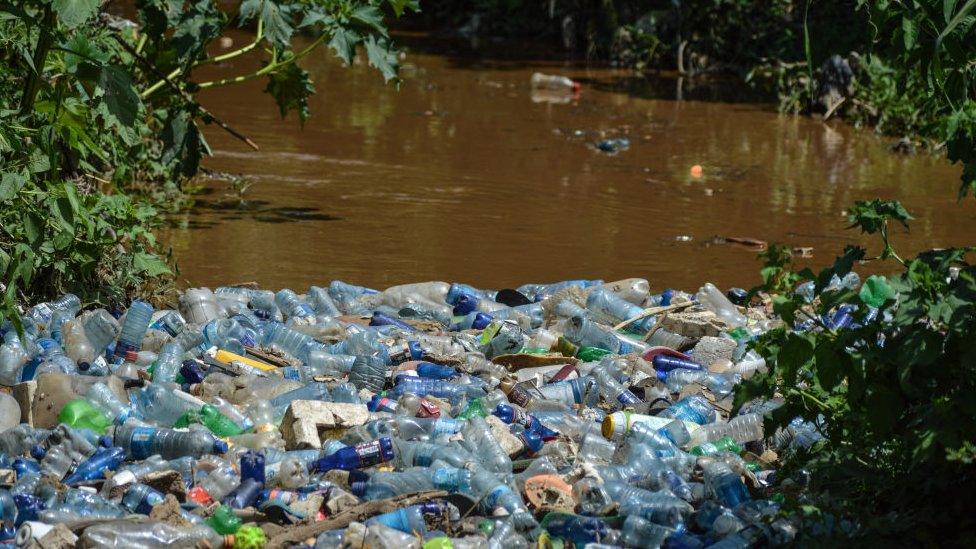Don't forget about plastic pollution, say scientists
- Published
- comments
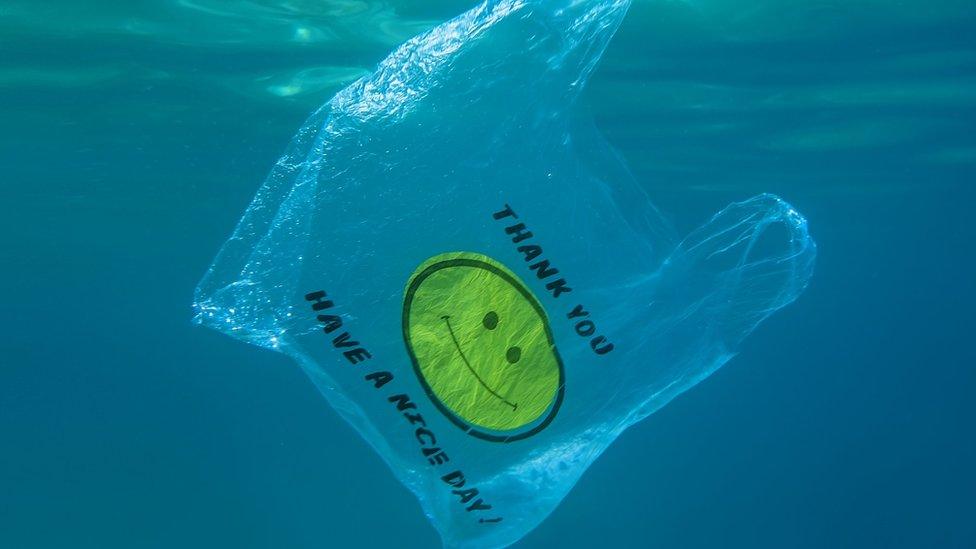
Plastic pollution should not be forgotten when world leaders are discussing how to prevent climate change, say scientists.
In recent years, climate change has become an increasing threat to the planet and a concern for governments.
As global temperatures soar, there's now a race against time to prevent the increase of massive disasters like flooding, heatwaves and wildfires.
But researchers from the Zoological Society of London and Bangor University say that plastic pollution and the climate are connected.
And they believe that plastic pollution might be at risk of being overlooked.
GUIDE: What's the problem with plastic?
Where does plastic come from?
Plastic is something created by humans and not found naturally in the environment.
Most plastic is made from fossil fuels like crude oil, coal and gas.
These substances are found beneath the Earth's crust, and are brought up to the surface through processes like drilling and fracking.
Plastic can be used to make containers, clothes, tyres, bank notes and more!
But creating plastics from fossil fuels, while useful for humans, can have a lot of negative impacts on the planet.
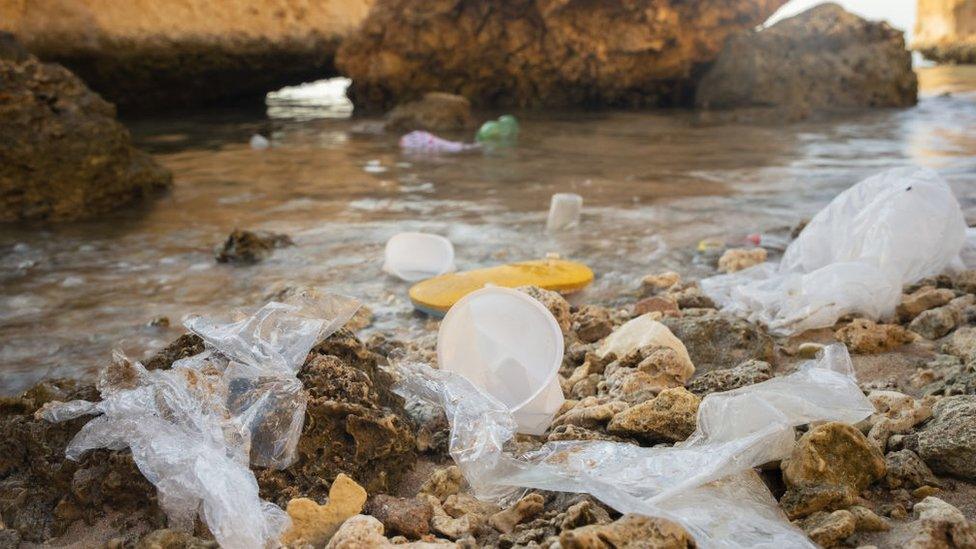
Why is plastic pollution a problem?
Even though plastic has only been around for just over 100 years, it's already had a devastating effect.
Research by Our World in Data estimates that 7.8 billion tonnes of plastic was created between 1950 and 2015.
Plastic which takes hundreds of years to break down, ending up as rubbish in the natural environment, endangering the homes of many animals.
And the way that plastic is created has harmful effects as well, as it involves the burning of fossil fuels.
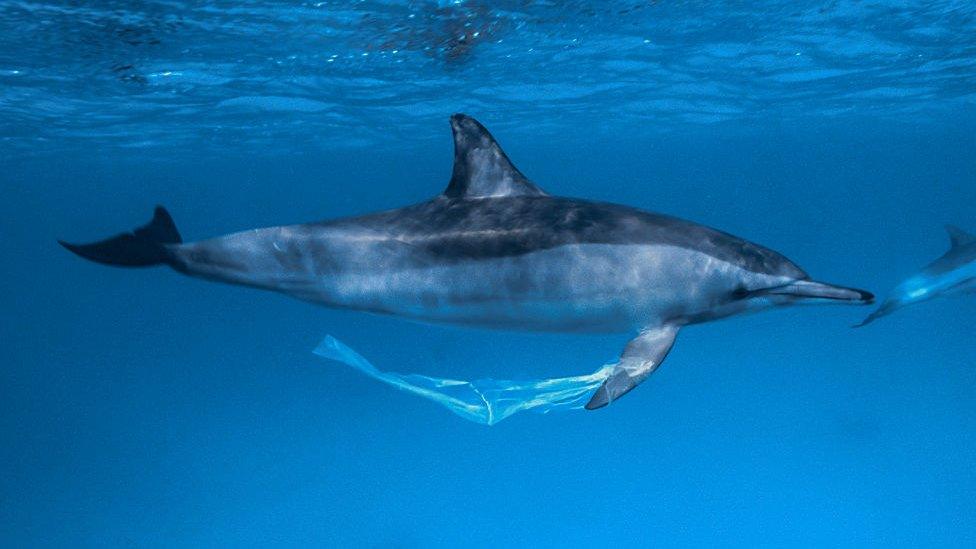
The world's oceans swallow up lots of the world's plastic waste.
It's thought that as much as 24,000,000 to 34,000,000 tonnes of plastic waste escapes into the world's waterways each year. That's the equivalent weight to nearly 6,000 adult blue whales.
This waste can damage marine life - killing millions each year. Animals can choke on or become entangled in plastic, or starve from eating too much plastic waste.
You can find out more about the damage plastics have on the planet by reading our guide here.
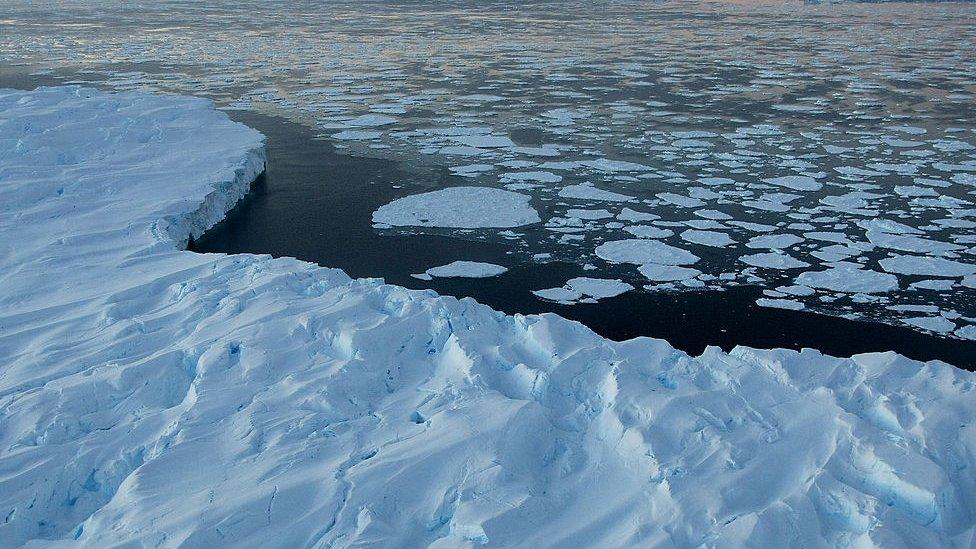
Is plastic pollution a distraction?
What is this study saying?
Helen Ford, from Bangor University, who led the research, said: "Our study shows that changes are already occurring from both plastic pollution and climate change that are affecting marine organisms across marine ecosystems and food webs, from the smallest plankton to the largest whale."
The Zoological Society of London say that they want policy makers and governments to put as much focus on plastic pollution as climate change.
But while the two are connected, some scientists argue that other climate change contributors like the burning of fossil fuels for energy, deforestation, our diet, and overfishing the oceans present a greater threat to the planet.
And that the focus on plastic pollution can be a distraction to these more damaging human activities.
What do you think about this issue? You can let us know in the comments below.
- Published17 March 2020
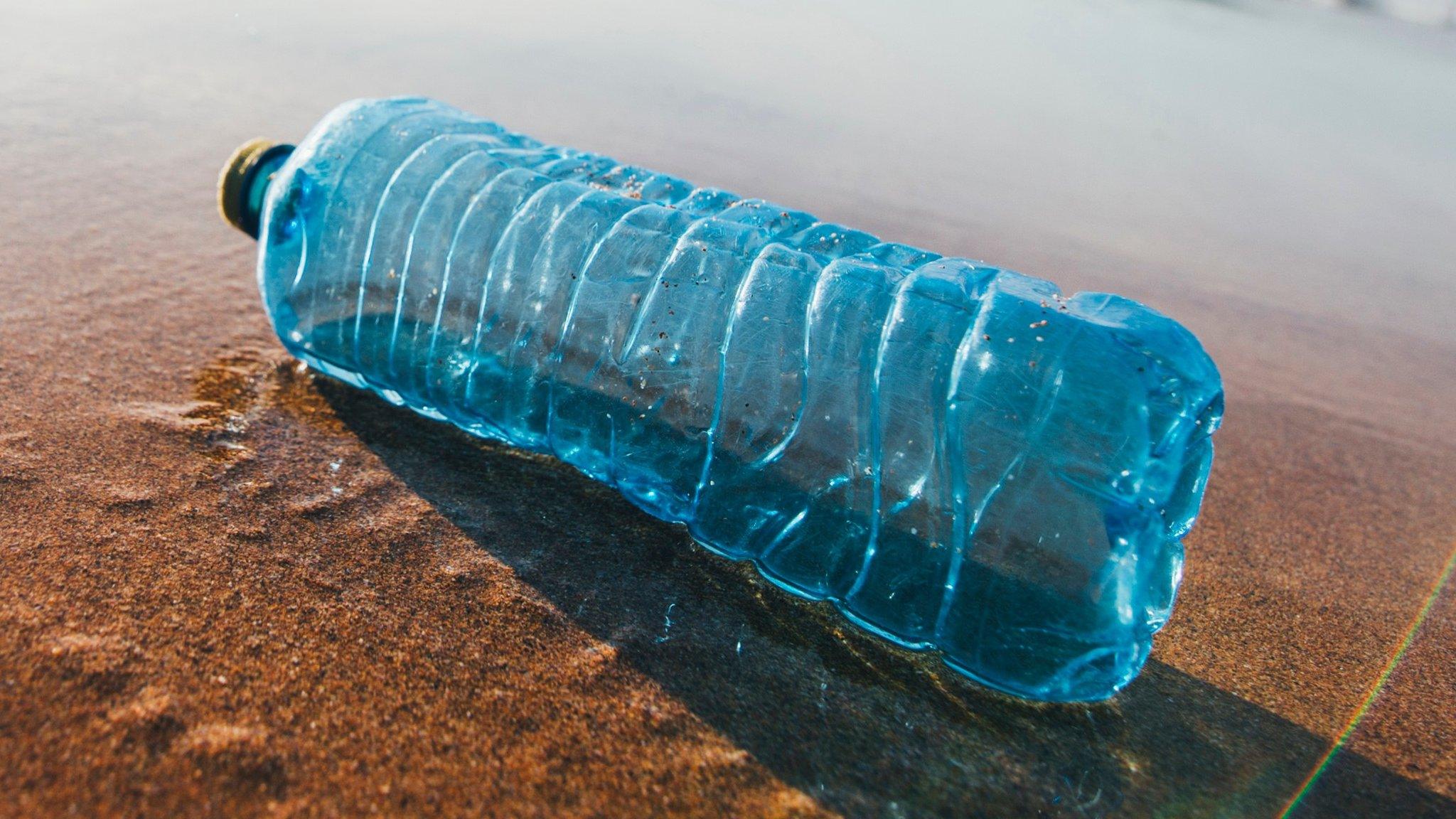
- Published18 September 2020
